Introduction
Do Ferrets Stink: Ferrets, those curious and mischievous little creatures, have captured the hearts of pet enthusiasts around the world with their playful antics and endearing personalities. However, one question that often arises when considering ferret ownership is whether or not they emit an unpleasant odor. In this exploration, we will delve into the world of ferrets to uncover the truth about their scent, dispel common misconceptions, and offer insights into how ferrets come owners can manage any potential odors associated with these charming, pint-sized companions. So, let’s unravel the mystery and discover whether ferrets truly stink or if there’s more to the story than meets the nose. Ferrets, members of the Mustelidae family along with skunks and otters, have a distinct musky odor that has contributed to their reputation as smelly pets. This odor comes from scent glands located near their tail, which produce a secretion that helps ferrets communicate and mark their territory.
While this natural scent is a fundamental part of their biology and plays a crucial role in their social interactions, it has led to some misconceptions about ferret hygiene. In this exploration, we will not only address the source of the ferret’s musky scent but also delve into various factors that influence its intensity. We will discuss the importance of proper ferret care, including grooming and maintaining a clean living environment, to mitigate any potential odor issues. Additionally, we will explore tips and tricks that ferret owners have developed over the years to strike a balance between enjoying the company of these captivating creatures and managing their unique fragrance. So, if you’re considering bringing a ferret into your life or are already a proud ferret parent seeking ways to make your home a more pleasant place, join us as we unravel the mystery of whether ferrets truly stink or if their remarkable qualities outweigh any olfactory challenges.
Throughout our exploration, we will also examine the endearing qualities that make ferrets such cherished companions. Their playful nature, intelligence, and affectionate demeanor are just a few of the reasons why people are drawn to these fascinating creatures. It’s important to remember that the scent associated with ferrets is just one facet of their multifaceted personalities, and many ferret owners readily attest that the joy and laughter these animals bring into their lives far outweigh any concerns about odor. Furthermore, we will consider the various methods and products available to help manage ferret scent effectively, from specialized shampoos and bathing routines to odor-neutralizing sprays and carefully designed living environments. By understanding the science behind ferret scent production and implementing practical strategies, ferret owners can enjoy a harmonious coexistence with their furry friends without being overwhelmed by any potential odors.
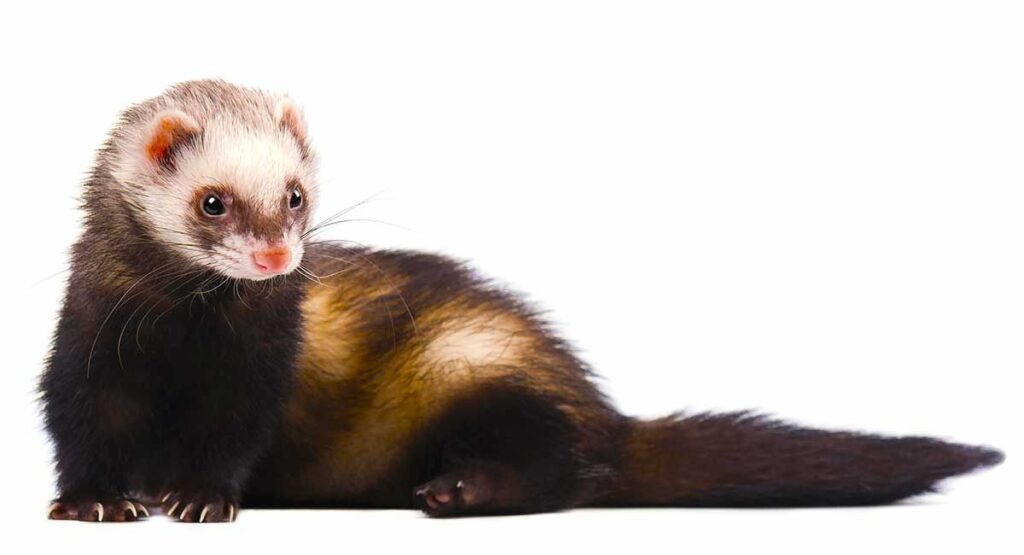
Do ferrets make your house smell?
Infrequent cleaning of areas in which they regularly play in, can lead to a pungent smell. That is why it is advisable to regularly clean the bedding, deep-clean the cage and have carpets cleaned on a regular basis, in order to remove excess oils from the ferret’s environment.
Proper Ferret Care
Brush your ferret’s fur regularly to remove excess oils and loose hair that can contribute to odor. Bathe your ferret occasionally, but not too frequently, as excessive bathing can strip their skin of essential oils and worsen odor issues. When bathing your ferret, use a mild, ferret-specific shampoo to maintain their skin’s natural balance.
Clean Living Environment
Ferret cages should be cleaned regularly to remove waste and reduce odor buildup. Consider using a ferret-friendly bedding material. Train your ferret to use a litter box to minimize waste odors. Launder your ferret’s bedding and washable toys regularly to eliminate odors.
Diet and Hydration
Provide your ferret with a balanced, high-quality ferret food to ensure proper nutrition and minimize digestive issues that can contribute to odors. Make sure your ferret always has access to fresh, clean water.
Ventilation
Ventilation is crucial for maintaining a fresh-smelling home. Ensure your home is well-ventilated, especially in the areas where your ferret spends most of their time.
How bad do pet ferrets smell?
If you’ve never smelled it before, it’s kind of hard to describe. It’s not the most pleasant-smelling odor. It can be very strong if ferrets are not descented because this odor comes from two scent glands, one gland on each side of their anus around their rear end, that they typically use to mark areas within the wild.
Ferrets are adorable and lively pets, known for their playful antics and inquisitive nature. However, one common misconception that often deters potential ferret owners is the belief that these charming animals come with a pungent odor. In this article, we will delve into the truth about how bad pet ferrets actually smell and explore the factors that contribute to their unique scent.
Ferrets, like many members of the Mustelidae family, possess scent glands located near the base of their tail. These glands produce a distinct musky odor, which serves various purposes in their natural behavior, such as marking territory and communication. The intensity of this odor can vary from one ferret to another, but it’s important to note that it’s not as overpowering as some may think.
The type of food you provide your ferret can affect their scent. Feeding a balanced, high-quality ferret food can help minimize digestive issues and reduce odor. Regular grooming and maintenance are essential to control ferret odor. Brushing your ferret’s fur helps remove excess oils and loose hair, reducing the musky smell. Proper cleaning of your ferret’s living space, including their cage and litter box, helps prevent odor buildup. Wash bedding and toys regularly.
Where do ferrets poop?
Ferrets will always poop in the corner. Imagine how many corners are in a room then think again. There are more than four corners in a room with furniture however ferrets have latrine areas and will favour a certain one. A litter tray with fresh litter is far more preferable to a ferret and so much easier to clean up.
Place one or more litter boxes in areas where your ferret spends most of its time. Common locations include the corners of rooms or in their cage. Ferrets often prefer to eliminate in corners or against walls, so positioning the litter box accordingly can be helpful.
Select a litter that is safe for ferrets. Avoid clumping cat litter, as it can be harmful if ingested. Paper pellet or recycled paper litters are suitable choices. Ensure that the litter is comfortable for your ferret to dig in, as they may have a preference for certain textures.
Establish a consistent routine for your ferret. Take them to the litter box after waking up, eating, or playing, as they are more likely to eliminate during these times. Be patient and persistent. Litter training may take some time, especially with young ferrets.
Praise and reward your ferret when they use the litter box correctly. This positive reinforcement encourages them to repeat the behavior. Avoid punishment or scolding if your ferret has accidents, as this can create anxiety and hinder the training process.
Does a ferret bite?
Hungry ferrets may bite to grab whatever might be food. And ferrets may bite when they resent being caged up for long hours; a bored ferret is usually a biting ferret. The solution is to play more often with your ferret — more handling leads to fewer tooth marks, not more.
Socialization: Properly socialize your ferret from a young age to reduce fear and aggression. Frequent handling and positive interactions can help them feel more comfortable around people.
Gentle Corrections: If your ferret bites during play, use a high-pitched “ouch” sound to mimic a ferret’s response when bitten too hard. This signals to your ferret that they’ve hurt you, and they may adjust their behavior.
Avoid Punishment: Avoid punishing your ferret for biting as it can lead to fear or aggression. Instead, focus on positive reinforcement for desired behaviors.
Provide Chew Toys: Offer a variety of safe chew toys to redirect your ferret’s biting tendencies and relieve teething discomfort.
Consistent Training: Be patient and consistent in your training efforts. Ferrets can learn to control their biting behaviors over time with proper guidance.
Do ferrets cuddle with humans?
Many ferrets like to snuggle with their humans. One thing you can try is getting a hoodie with a front pocket. Your furry little pal may like to curl up in there as you’re relaxing. You can also lie down on the floor with a blanket.
Ferrets, with their spirited and inquisitive personalities, have earned a special place in the hearts of pet enthusiasts. Yet, one question that often arises among potential ferret owners is whether these playful creatures are inclined to cuddle with humans. In this article, we’ll explore the affectionate side of ferrets, their propensity for cuddling, and how to foster a loving bond with these endearing pets.
Ferrets, much like dogs and cats, can form strong bonds with their human companions. While their approach to affection may differ from traditional cuddling, ferrets do display various forms of physical affection and companionship.
Ferrets often enjoy snuggling up to their owners, particularly in a cozy blanket or hammock. They may even nestle into your arms or lap for warmth and comfort. Ferrets demonstrate their affection by grooming their owners. This gentle nibbling, known as “ferret kisses,” is a sign of bonding and trust. Ferrets love to play, and interactive playtime can be a form of bonding. They may chase your fingers or playfully pounce on you, seeking your attention.
Are ferrets good pets for kids?
Lively, curious and fun-loving ferrets make great pets, but they’re not the easiest to handle and can bite if startled, so, they don’t always make good pets for children. Like all pets, ferrets require more looking after than a child can offer and responsibility for any animal’s wellbeing lies with adults.
When it comes to choosing a family pet, ferrets are often considered for their playful and charming nature. However, the question of whether ferrets make good pets for kids is an important one. In this article, we will explore the suitability of ferrets as family pets, taking into account various factors that families should consider when deciding to bring these furry companions into their homes.
Ferrets are known for their boundless energy and playful antics, which can make them appealing to children. Their inquisitive and social personalities often lead to enjoyable interactions, fostering a sense of companionship within the family. The age and maturity of the child play a crucial role in determining whether a ferret is a suitable pet.
Ferrets have sharp teeth and claws, and very young children may not fully grasp the importance of gentle handling. It’s essential for parents to provide close supervision when children interact with ferrets. This ensures the safety of both the child and the ferret. Check for allergies within the family. Some family members, including children, may have allergies to ferret dander, which can affect their suitability as pets.
Can ferrets live alone?
Ferrets love the companionship of other ferrets for comfort and play. Ferrets don’t cope well living alone and should be kept in pairs or groups. You’ll often find them having an impromptu play, charging around their enclosure and springing at each other.
Ferrets, with their sociable and playful nature, thrive on interaction and companionship. The question of whether ferrets can live alone often arises among prospective ferret owners. In this article, we’ll explore the social needs of ferrets, the benefits of having a ferret companion, and the considerations for those contemplating the idea of a solitary ferret.
Ferrets are inherently social animals that naturally live in groups or “businesses” in the wild. This social structure is a fundamental aspect of their behavior and well-being. In captivity, ferrets carry this need for companionship, making it crucial for their physical and emotional health.
Solitary ferrets often experience loneliness and stress, which can lead to behavioral problems, such as excessive grooming, biting, or depression. Ferrets are active creatures that require ample exercise and playtime. A companion provides an outlet for their energy and encourages more vigorous and stimulating play.
Ferrets groom each other as a form of social bonding. Without a companion, they may miss out on this essential aspect of their natural behavior. Interaction with a companion ferret provides mental stimulation and prevents boredom, reducing the likelihood of destructive behaviors.
Why ferrets don t make good pets?
Ferret owners should be aware that although ferrets can make good pets, they can sometimes carry germs that can make people sick. Ferrets are also not recommended for homes with children under 5 years of age because of the increased risk of injury from bites.
Unique Odor
One of the most well-known aspects of ferret ownership is their distinct musky odor. This odor, emitted by scent glands near their tail, can be unpleasant for some people and challenging to manage effectively.
Energy Levels
Ferrets are incredibly active and require ample playtime and mental stimulation. Their high energy levels may not be suitable for individuals who have limited time to interact with and entertain their pets.
Space Requirements
Ferrets need a dedicated living space with room to play and explore. Owners with limited living space may find it challenging to provide an appropriate environment for these curious animals.
Biting and Nipping
Ferrets have sharp teeth and tend to play-bite as part of their natural behavior. While this behavior can be trained and managed, it may not be suitable for households with young children or individuals who are sensitive to nipping.
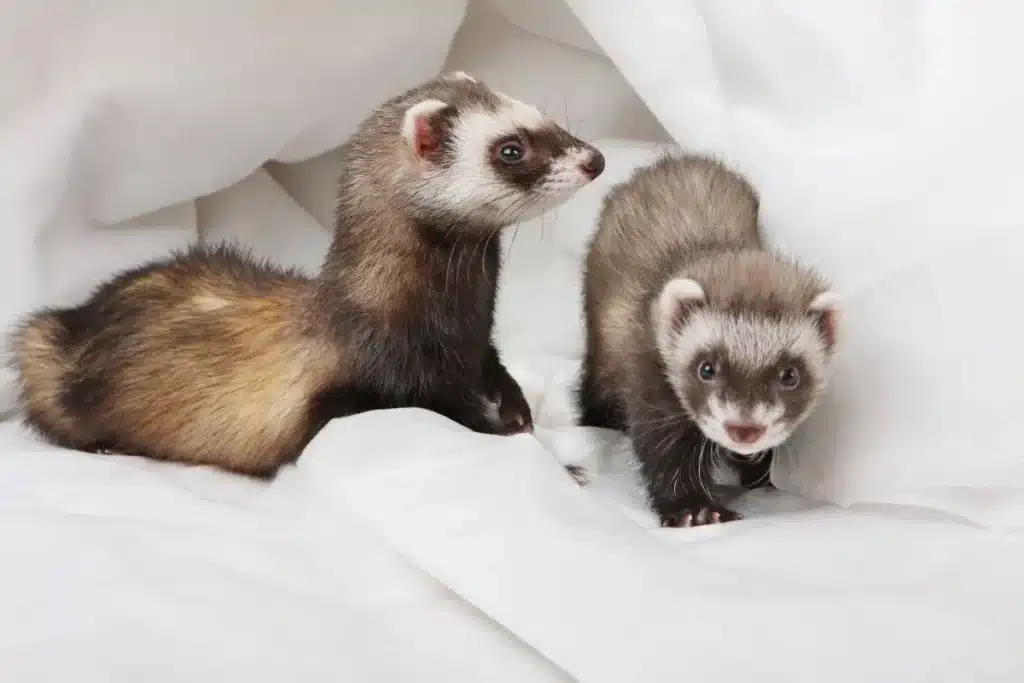
Conclusion
In the world of pet ownership, the question of whether ferrets stink is one that has intrigued and concerned potential and current ferrets smell enthusiasts alike. Our exploration into the matter has revealed a more nuanced understanding of ferret scent, dispelling some misconceptions while shedding light on practical solutions for those who share their lives with these captivating creatures. We’ve learned that ferrets do indeed have a natural musky odor, a result of scent glands located near their tail. This odor is a crucial aspect of their biology, serving as a means of communication and territorial marking. While this scent is an inherent part of their charm, it doesn’t necessarily equate to an overwhelming or unpleasant stench. Proper ferret care and maintenance play a significant role in managing their scent. Regular grooming, bathing, and maintaining a clean living environment can significantly reduce any potential odor issues associated with ferrets.
Additionally, the use of specialized products and strategies, such as odor-neutralizing sprays and carefully designed enclosures, can further enhance the experience of living with these lovable pets. Throughout our exploration, we’ve also celebrated the endearing qualities that make ferrets cherished companions: their playfulness, intelligence, and affectionate nature. The unique bond formed with ferrets often outweighs any concerns about scent, as countless ferret owners will attest. The key to enjoying the company of these delightful creatures lies in understanding their unique scent, implementing effective hygiene practices, and appreciating the many joys and laughter they bring into our lives. So, for those considering or already embarking on a journey with ferrets, rest assured that with proper care and a little knowledge, the fragrance of your ferret companionship can be a delightful one.
Ferret ownership is a rewarding experience filled with laughter, love, and boundless curiosity. While ferrets may have a reputation for their scent, it’s just one facet of their complex personalities. Their playful antics, intelligence, and affectionate interactions often make them beloved members of many households. For those who have embraced the world of ferret ownership, the scent is but a small price to pay for the joy and companionship these creatures bring. With a combination of responsible care and an understanding of ferret biology, it’s entirely possible to have a harmonious and pleasant relationship with these charming and spirited animals. So, whether you’re already a ferret aficionado or contemplating bringing one into your life, rest assured that the truth about ferrets and their scent is a fragrant blend of love, laughter, and unforgettable moments.

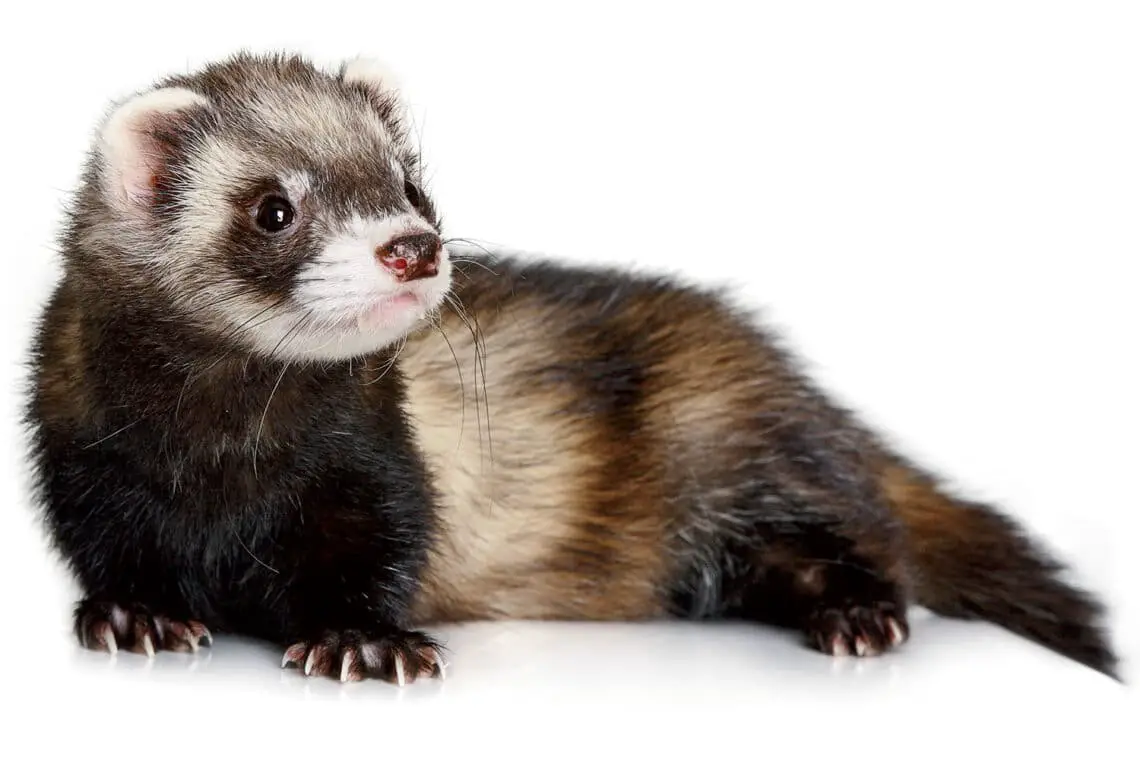
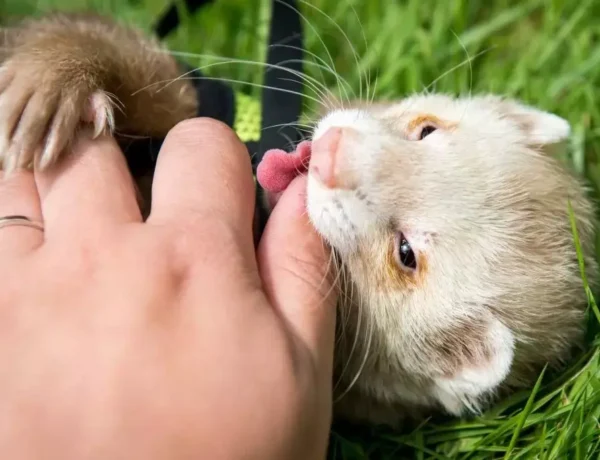
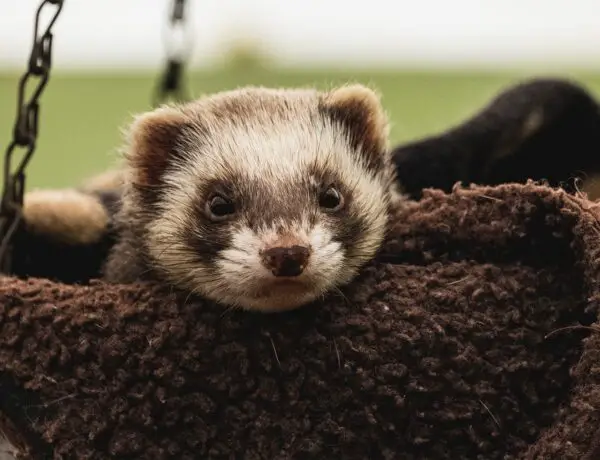
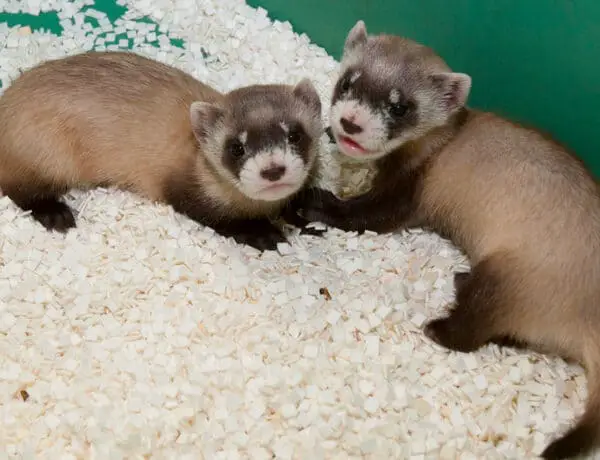
No Comments